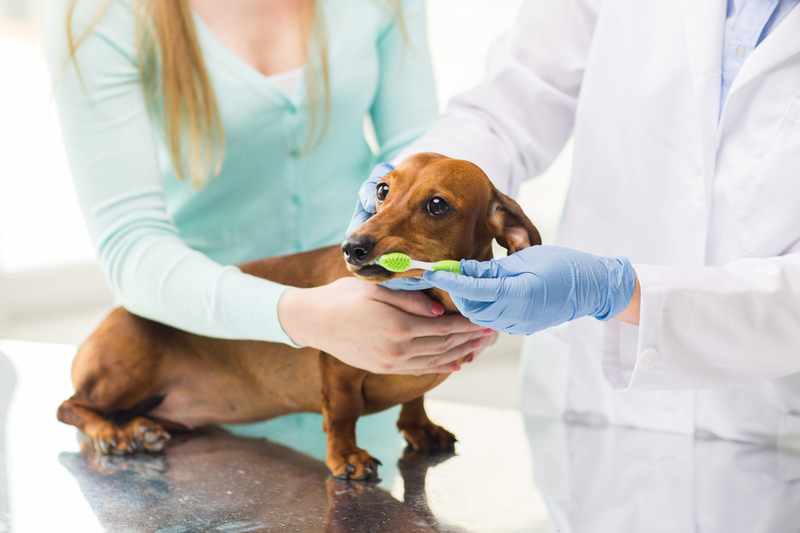
Periodontal disease is actually the most prevalent dental problem that can affect our pets. This silent condition usually develops gradually and without any symptoms until it reaches advanced stages. At this point, there can be serious consequences for your pet. Not only will they begin to suffer from unpleasant, painful and quite debilitating symptoms, but the condition could also be having a wider impact on their health.
Research has found that there is an indisputable link between periodontal disease and chronic health conditions like diabetes, high blood pressure, heart disease and kidney and liver problems in people, and there’s nothing to suggest that our animals will be any different. This link is believed to be caused by bacteria present in the infected gum tissue entering the bloodstream and passing around the body where it can access and affect other organs.
Fortunately, there are things that you can do to prevent your pet from the unnecessary suffering that accompanies periodontal disease. Here’s what you need to know about how to treat it and what you can do to keep it at bay.
Symptoms of periodontal disease in pets
In order to treat periodontal disease in your pet, you first need to be sure that it is definitely the problem that your pet is experiencing. As we know, gum disease develops very slowly, and this does make it difficult to spot. However, there are signs to look out for that indicate that your pet may have this condition. These include:
- Problems picking up and holding food or other objects
- Gums that look very red
- Gums that bleed when your pet eats, or you may notice blood on their toys or in their water or food bowls
- Bad breath that is beyond the usual odor expected in a pet
- Bloody saliva
- Eating on one side
- Refusing to let their head or face to be touched
- Loose teeth
- Obvious pain
If your pet has any of these symptoms, ask your veterinarian to perform a dental evaluation as soon as possible. They will be able to confirm if your pet has periodontal disease and recommend the necessary treatment.
Treatment for periodontal disease in pets
The treatment that will be recommended for your pet will depend on the extent of their periodontal disease, but there are a number of options available. These include:
Antibiotics. Antibiotics are a common treatment for infections and are particularly useful for treating abscesses which can occur due to periodontal disease.
Anti-inflammatory medications. Periodontal disease is an inflammatory condition, and so anti-inflammatory medications are usually effective. They will also help your pet better manage any discomfort they are experiencing.
Professional cleaning. Proper cleaning by your veterinarian is the only way to remove any tartar which has accumulated on your pet’s teeth. It is plaque and tartar that is responsible for periodontal disease, so removing these is an effective treatment. However, this must be done using general anesthetic as this is the only way to safely clean your pet’s teeth with professional tools.
If your pet’s periodontal disease is advanced, they may need surgery to extract teeth or repair receded gum tissue.
Preventing periodontal disease in pets
The best way to prevent periodontal disease in pets is to take proper care of their teeth at home. You can do this by brushing them regularly yourself using a standard small-headed toothbrush or special veterinary toothbrush and a pet-approved toothpaste. You should never use human toothpaste as it contains ingredients which are toxic if consumed by your pet. Brushing your pet’s teeth isn’t as hard as it sounds, and your vet will be happy to show you appropriate techniques that you can use at home.
Another great way to prevent periodontal disease is to provide your pet with chew toys. Chewing stimulates the production of saliva, which neutralizes plaque acids and washes away bacteria. Abrasive chew toys also rub against the teeth in the same way as a toothbrush, removing plaque from the teeth before it has chance to cause any damage to them.
Professional cleanings aren’t just for humans either. Most vets recommend that pets are taken in for annual dental cleans which are performed using general anesthetic and enables them to remove every trace of plaque and tartar from your pets’ teeth. If your pet is suffering from dental problems, the frequency of these visits may be increased to six-monthly.
If you have further questions about periodontal disease in pets and would like more advice and support, our expert veterinary team would be happy to help. Please call our clinic to schedule an appointment.






